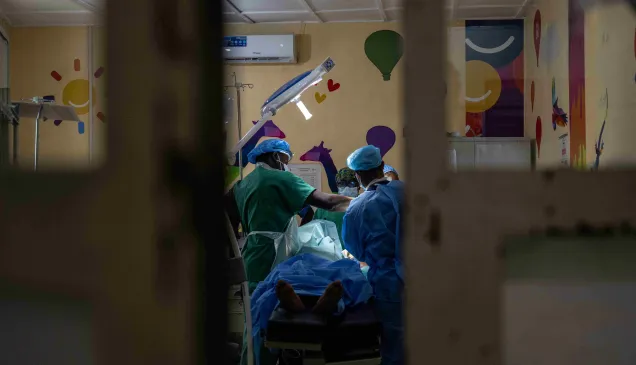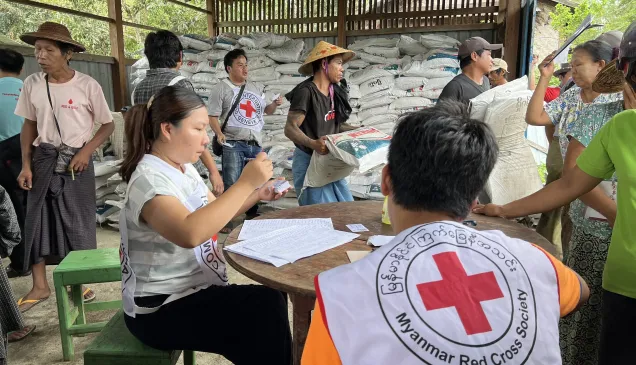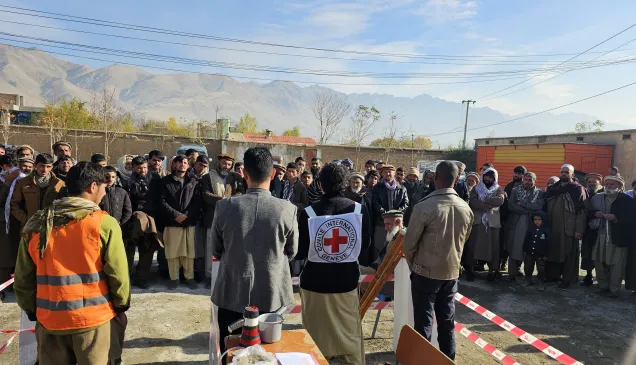The lack of local medical facilities and expertise are a big challenge for the ICRC medical teams in South Sudan because there are no other health structures or specialists in the country to which patients can be referred.
Mobile surgical teams bring emergency medical care throughout South Sudan
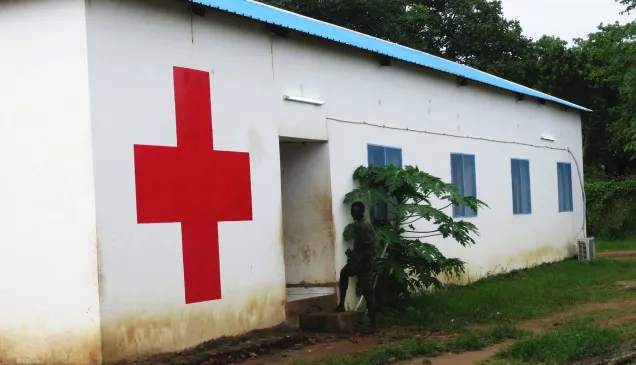
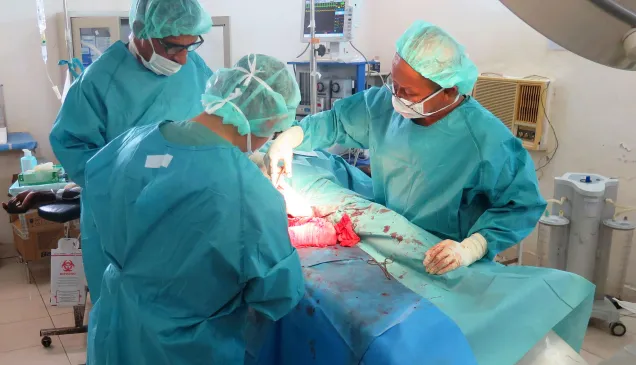
The five ICRC mobile surgical teams currently deployed across South Sudan are able to perform all kinds of surgical procedures, from caesarean sections to complex chest or abdominal operations.
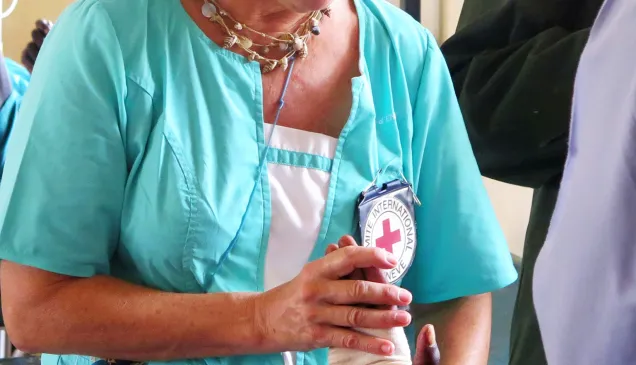
Each of the surgical teams is composed of a general surgeon, an anaesthetist and three nurses, often supported by a physiotherapist.
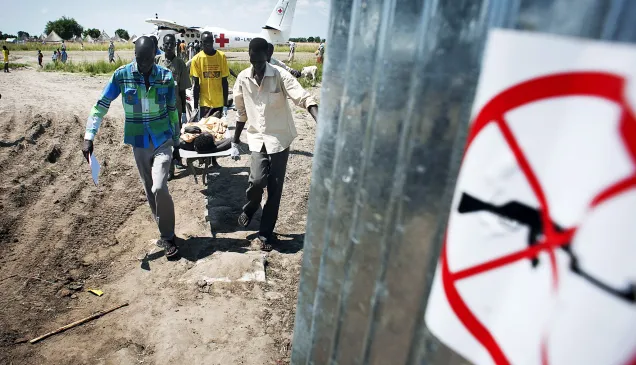
The ICRC in South Sudan is facilitating the evacuation of the wounded on both sides of the front line and providing them with emergency medical and surgical attention.

The surgical teams are often deployed in remote areas of the country where communities have lost access to health care due to the conflict.
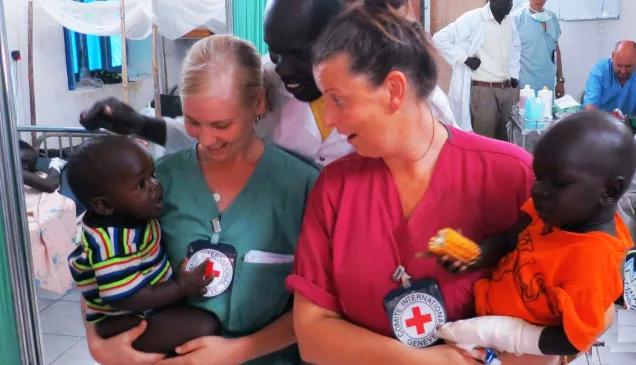
The ICRC is also supporting primary health care in South Sudan, and since the beginning of the crisis has vaccinated 3,500 children.
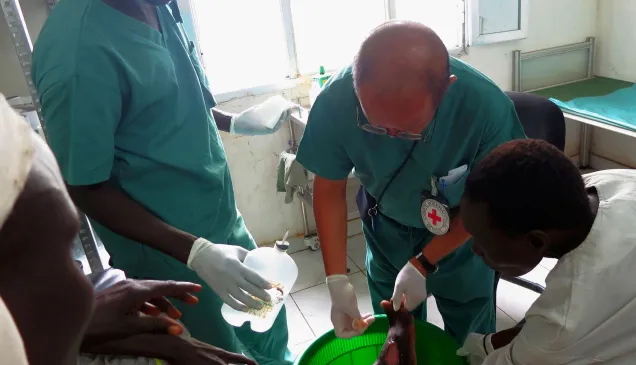
ICRC medical teams work hand in hand with local health workers, helping to build their capacity to work autonomously in the future.
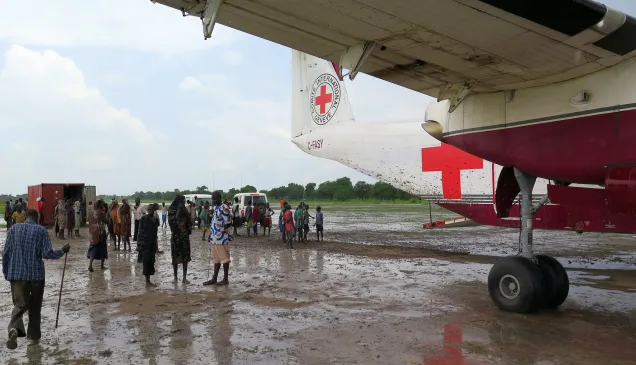
Logistics is one of the main constraints for the surgical teams. Due to poor road conditions, the transport of staff, patients and materials is primarily done by plane or helicopter.
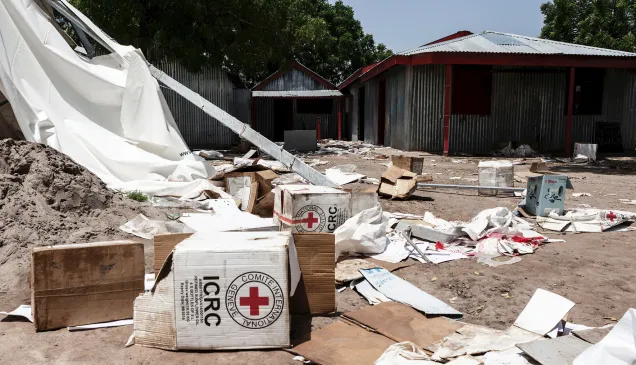
The worsening security situation in some areas of South Sudan has forced the ICRC to suspend the deployment of its surgical teams in several field locations.
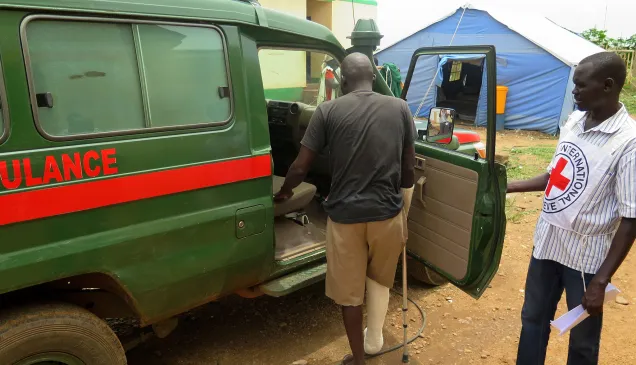
Under international humanitarian law, medical personnel, facilities and means of transportation must be respected and protected while humanitarian actions are being carried out.
From the onset of the crisis, the ICRC's mobile surgical teams have been providing access to health care for those affected by the conflict on both sides of the front line in South Sudan. Since December 2013, more than 6,000 emergency surgeries have been performed across the country.

